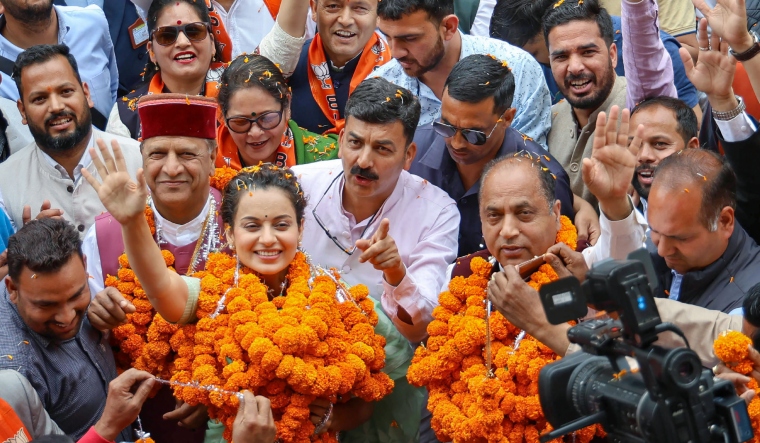After actor-politician Kangana Ranaut, the BJP candidate from Himachal Pradesh's Mandi constituency for the upcoming Lok Sabha elections, claimed Netaji Subhas Chandra Bose was the first Prime Minister of India, the late freedom fighter's family came up with a public response on Sunday.
Netaji's grand-nephew hit out at Kangana Ranaut by saying that "no one should distort history for their political ambition."
Chandra Kumar Bose, in a separate post on X (formerly Twitter), further elaborated: "Netaji Subhas Chandra Bose was a political thinker, soldier, statesman, visionary and the 1st PM of undivided India. The only leader who could unite all communities as Bharatiyas to fight for India’s freedom. Real respect to the leader would be to follow his inclusive ideology."
Netaji Subhas Chandra Bose was a political thinker,soldier,statesman, visionary and the 1st PM of undivided India.The only leader who could unite all communities as Bharatiyas to fight for India’s freedom.Real respect to the leader would be to follow his inclusive ideology. pic.twitter.com/W4zjrHYOVs
— Chandra Kumar Bose (@Chandrakbose) April 6, 2024
Kangana Ranaut made the remark during a recent media summit, the clip of which went viral on social media. Trolls took over instantly, questioning the BJP candidate's historical sense.
Meanwhile, Assam Chief Minister Himanta Biswa Sarma on Friday defended actor-turned-politician and BJP's Lok Sabha candidate Kangana Ranaut's assertion that Netaji Subhas Chandra Bose was the first Prime Minister of the country.
Sarma said Netaji had established the Azad Hind government four years before Pandit Jawaharlal Nehru had become the Prime Minister which was recognised by nine countries.
'To those mocking @KanganaTeam - On 21 October 1943, Netaji established the Azad Hind Govt, of which he was the head, nearly 4 years before Pt Nehru took oath as Prime Minister following transfer of power', the Chief Minister posted on 'X'.
'Nine countries recognised the Azad Hind Govt as the legitimate Government of India. This subconscious urge to interpret history on the lines of colonialists is called 'Ghulami ki Mansikta'", he added.









